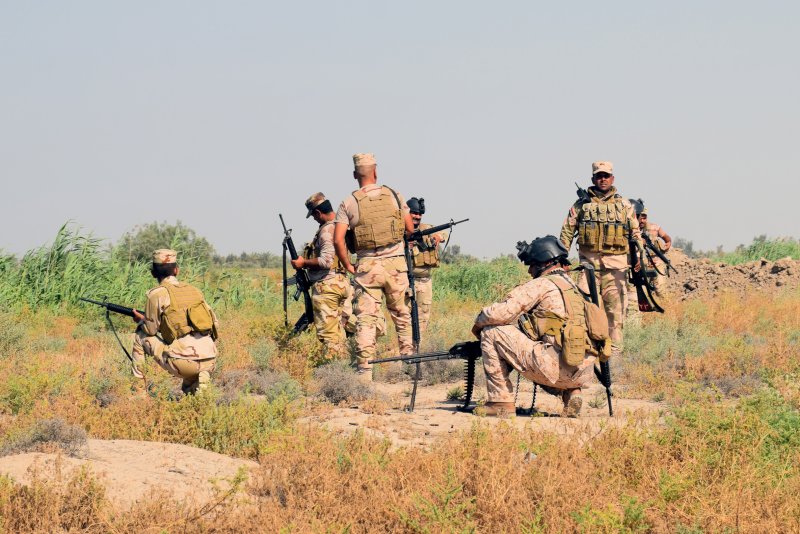Iraq oil export data show few issues from protests in Basra that have caught the attention of Human Rights Watch. File Photo by Awras Aamer/EPA
July 24 (UPI) -- Iraqi oil exports for June, the last full month for which data are available, were slightly higher than the month before on average, the government reported
Statistics from the State Organization for Marketing of Oil show total June exports of 105.6 million barrels. Provided exports occurred every day last month, the average is around 3.5 million barrels per day.
May exports averaged 3.48 million barrels per day, provided Iraq exported oil every day that month.
Iraq exported about 625 million barrels of oil during the first half of the year, compared with 592 million barrels over the same period in 2017. SOMO does not include output from the semi-autonomous Kurdish region in northern Iraq. Most of the oil from the north flows over the border through Turkey from territory controlled by the Kurdistan Regional Government.
Iraq is the second-largest producer among members of the Organization of Petroleum Exporting Countries, behind Saudi Arabia. Secondary sources reported to OPEC economists said Iraq produced 4.5 million barrels per day in June, a 1.6 percent increase from May.
Iraq has been among the least compliant with production cuts agreed to by OPEC members. The June production average was the highest in recent history.
The surge in production comes amid protests in the southern oil region in Basra province. The political situation in the country is tense in general after May elections. A parliamentary bloc led by influential Shiite cleric Moqtada Sadr emerged victorious. Sadr's militia led an uprising against U.S. forces at the height of the campaign that started in the middle of the last decade.
Southern protestors have complained the region's vast oil wealth hasn't trickled down. Demonstrators have tried to block key port access, though there are no indications so far production or exports are curtailed.
Human Rights Watch reported Tuesday that the situation could escalate amid reports that Iraqi security forces have fired live rounds at area demonstrators.
"So long as the government fails to address protester grievances, the danger of further bloody protests remains real," Sarah Leah Whitson, the Middle East director at Human Rights Watch, said in a statement.















